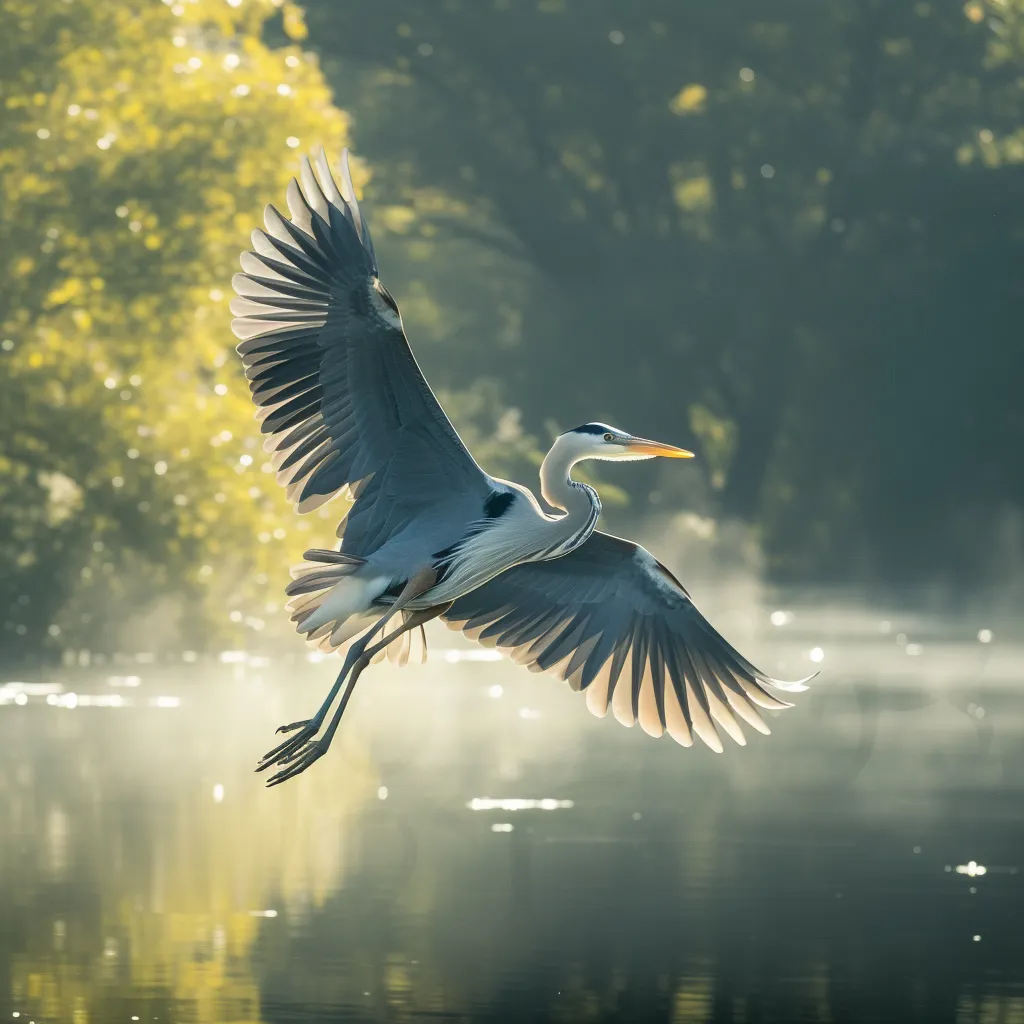Blog
Home > Blog

Wildlife Wonders: Protecting Our Natural Inhabitants
Imagine stepping into a world where every creature, from the majestic elephant to the tiny bee, thrives in harmony. And that's our target with protecting wild animals and their homes. It's not just about saving animals; it’s about preserving life itself. Studies are in, and they're pretty clear - taking steps to protect natural habitats is a huge win for helping endangered species bounce back. But here's the kicker - despite overwhelming support for such measures, political and commercial interests often pose challenges.
This guide isn't just another read; it’s your blueprint for making a tangible difference. Whether you’re drawn by family values or driven by data showing the staggering ROI of conserving nature, there’s something in here for you.
The Urgency of Wildlife Conservation
Wildlife conservation has never been more critical. As human populations grow and expand, we're putting increasing pressure on the natural world and the creatures that call it home.
From habitat loss to pollution, the threats facing wildlife are numerous and complex. But one thing is clear: if we don't act now, many of the magnificent species we share this planet with could be lost forever.
Understanding the Threats to Local Wildlife
Local wildlife faces a range of threats, from poaching and illegal trade to pollution and disease. But perhaps the biggest threat of all is habitat loss.
By chopping down forests, draining wetlands, and turning wild spaces into places for us to live and work, we're wiping out the very spots where wildlife loves to hang out and find their food. According to the World Wildlife Fund, habitat loss is the greatest threat to species around the world.
The Impact of Habitat Loss on Ecological Variety
The impact of habitat loss on biodiversity cannot be overstated. When we destroy natural habitats, we don't just harm individual species - we disrupt entire ecosystems.
As the United Nations reports, around 1 million animal and plant species are now threatened with extinction, many within decades. This loss of biodiversity could have devastating consequences for the health and resilience of our planet.
Community Connection with Nature
While the challenges facing wildlife may seem overwhelming, there is hope. Around the world, local communities are playing a vital role in conservation efforts - and deepening their connection with nature in the process.
The Role of Local Communities in Conservation Efforts
Local communities are often on the front lines of wildlife conservation. From indigenous tribes in the Amazon to rural villages in Africa, people who live closest to nature are uniquely positioned to protect it.
By involving local communities in conservation efforts - and ensuring they benefit from the sustainable use of natural resources - we can create a powerful force for positive change. The Nature Conservancy highlights numerous examples of successful community-led conservation around the globe.
Fostering a Deeper Connection with Nature
For conservation to succeed long-term, we need more than just policies and programs - we need a fundamental shift in how we view and value nature. Fostering a deeper connection between people and the natural world is key.
This connection can take many forms, from outdoor education and recreation to cultural traditions and spiritual practices. By sparking a sense of curiosity, teaching them to respect and care for our natural world, we're paving the way for future generations to become passionate protectors of our planet.
Republican Commitment to Natural Beauty in Coastal Georgia
In the United States, conservation goes hand-in-hand with conservative principles. Here in Georgia, it's the Republicans who are stepping up to shield this area’s breathtaking natural scenery and its teeming ecosystems from harm.

Political Support for Wildlife Conservation
Georgia Republicans like Governor Brian Kemp have made wildlife conservation a top priority. In 2020, Kemp signed an executive order to create the Georgia Outdoor Stewardship Trust Fund, which provides dedicated funding for conservation projects across the state.
Other Republican leaders, like U.S. Senator David Perdue, have also championed conservation efforts. Perdue co-sponsored the WILD Act, which supports wildlife conservation and habitat restoration in coastal areas.
Impact of Republican Policies on Local Ecosystems
Thanks in part to Republican leadership, coastal Georgia is home to some of the most pristine and biodiverse ecosystems in the country. Stretching from the wild, sprawling Okefenokee Swamp all the way to the secluded barrier islands, this area is a haven for an incredible variety of animals.
Thanks to Republican efforts, our natural havens and the diverse life they support have found a stronger shield of protection.
Wildlife Conservation Success Stories
Sure, the hurdles wildlife faces can seem overwhelming at times, but there's also a hefty dose of optimism to go around. Around the world, conservation efforts are making a real difference for species on the brink.
Saiga Antelope's Remarkable Recovery
The saiga antelope, a critically endangered species native to Central Asia, has made a remarkable comeback thanks to dedicated conservation efforts. After poaching and disease decimated saiga populations in the 1990s, the World Wildlife Fund and other organizations worked with local communities to protect the species.
Today, saiga numbers have rebounded from less than 50,000 to over 1.3 million - a true conservation success story.
Protecting Whales from Entanglement
Getting tangled up in fishing gear poses a huge risk to whales all around the globe. But in the U.S., innovative efforts are helping to protect these majestic creatures.
The Atlantic Large Whale Take Reduction Plan, implemented by NOAA Fisheries, has reduced the risk of entanglement for North Atlantic right whales and other species. By working with fishermen to modify gear and implement seasonal closures, the plan has helped protect whales while supporting sustainable fisheries.
Snow Leopard Conservation Efforts
The elusive snow leopard, an iconic species of the high mountains of Asia, is threatened by poaching, habitat loss, and pollution. Yet, there's a ray of hope as conservation teams are putting in the effort to shield this majestic feline from harm.
The Snow Leopard Trust, for example, partners with local communities to reduce human-wildlife conflict, improve livelihoods, and protect snow leopard habitat. Through innovative programs like livestock insurance and handicraft sales, the Trust is helping ensure a future for this endangered species.
The Role of Wildlife Conservation Organizations
Wildlife conservation organizations play a vital role in protecting species and habitats around the world. From conducting research and raising awareness to implementing on-the-ground conservation projects, these dedicated groups are making a real difference.
Wildlife Conservation Society's Global Impact
The Wildlife Conservation Society (WCS) is one of the world's leading conservation organizations, with a presence in over 60 countries. WCS scientists and conservationists work tirelessly to protect wildlife and wild places, from the Arctic to the Congo Basin.
Some of WCS's notable successes include helping to establish the world's largest tiger reserve in India, protecting gorillas in the Congo, and restoring bison to the American West.
How You Can Support Wildlife Conservation Efforts
While organizations like WCS are doing incredible work, they can't do it alone. We all have a role to play in protecting the natural world and the creatures that call it home.
One of the easiest ways to support conservation is by making a financial contribution to a reputable organization like WCS. But there are many other ways to get involved, from volunteering your time to advocating for wildlife-friendly policies.
By working together and doing our part, we can ensure a future where wildlife thrives and nature's beauty endures for generations to come.
Key Takeaway:
Wildlife conservation is urgent to protect species and habitats facing threats like habitat loss, pollution, and poaching. Local communities play a crucial role in these efforts, showing that when we connect with nature and work together, we can create positive changes for our planet's biodiversity.
Conclusion
We've walked through forests of information, across plains rich with actionable insights on safeguarding our natural heritage through effective wildlife conservation strategies.
The truth is simpler yet profound: when we choose action over apathy, engagement over ignorance, we don’t just save them—we save us too. Because at day's end, protecting wildlife enriches our quality of life as well.
Let this be more than words on a screen; let it spark change.
Sign up for Glenn's Weekly Newsletter

